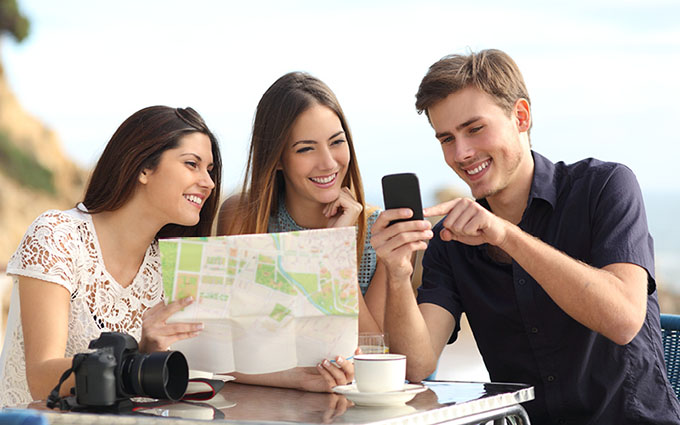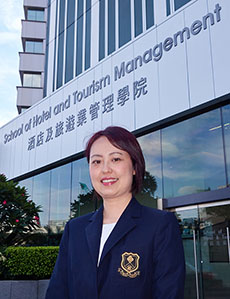Being part of people’s lives nowadays, smartphone use also has influence on their travel experiences. In this issue, Dr Wang Dan at the School of Hotel and Tourism Management will share her views on how smartphone use shapes the tourist experience.
What are the phenomena of smartphone use during travel?
The impact of technology, particularly smartphones, on travel is evolving. Nowadays, travel is no longer a temporary reversal of everyday activities that essentially involves a “no-work, no-care, no-thrift situation”. With friends, family and the workplace just a swipe away, smartphone is increasingly difficult to truly switch off.
I believe that there is a mutual penetration of the experiences from the travel context and everyday life context. Travellers have indeed gained experience using new technologies and the benefits those technologies have brought.
Please explain your study.
To determine the extent to which smartphone use spills over from everyday life into tourism, my research team has carried out in-depth interviews with experienced US travellers.
The subjects met three criteria. First, they owned and used smartphones running one of the top three operating systems - iOS, Android and Blackberry. Second, they had travelled for leisure at least three times in the past year, with at least one trip occurring in the three months before the interview. Third, they had subscribed to unlimited data plans.
The subjects were asked about their everyday use of smartphones, the subsequent changes in their communication and information consumption, whether smartphones had influenced both their travel planning and experience, and the functions and information services they used while travelling.
What changes in tourist experience have been brought about by smartphone use?
We found considerable overlaps between the everyday and travel uses of smartphones. It was explicitly considered as “spillover” effects on smartphone use during travel. Subjects felt more social obligations during trips because they got used to frequent communication in their daily lives.
The findings show that, the greater connectivity that the devices afforded helped the subjects to feel “more connected with family and friends”, “more secure” and “less isolated”. Smartphone use for entertainment allowed them to enjoy or “be themselves” while travelling. Facilitation purposes such as managing itinerary, navigation, flight check-in afforded greater convenience and efficiency. Also, the information acquisition and search features provided travellers with more flexibility to re-plan and re-schedule during trips.
What are the implications for practitioners in the tourism industry?
According to this study, smartphone use clearly has the potentials to substantially alter tourist experience. In particular, the results showed that the different uses of smartphones in everyday life are associated with different perceptions toward the capability of smartphones and, in turn, how travellers communicate, consume information, and use their time.
Tourism practitioners should be aware of the interconnectedness of different locales, contexts, and channels of information and communication for today’s smartphone-equipped tourists. Since mobility-specific services are becoming even more important and powerful, tourism marketers need to understand those smartphone tools and channels tourists use on a daily basis in their everyday living context.

